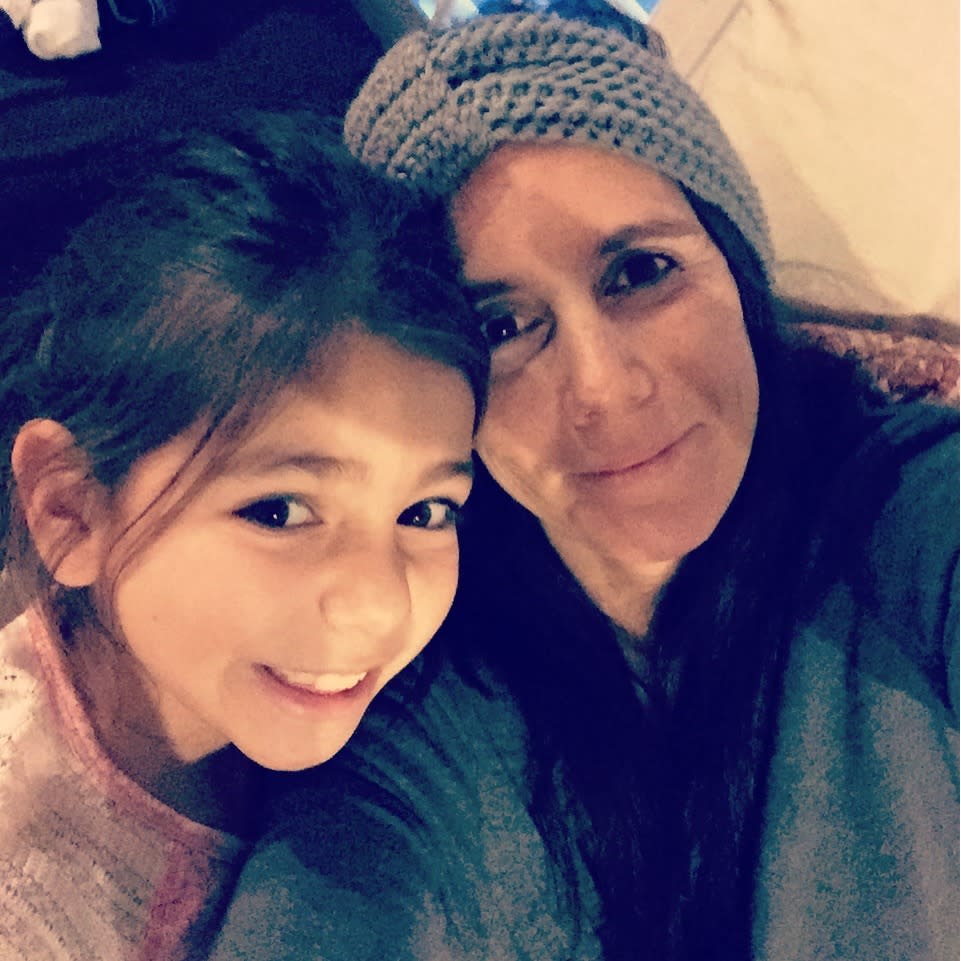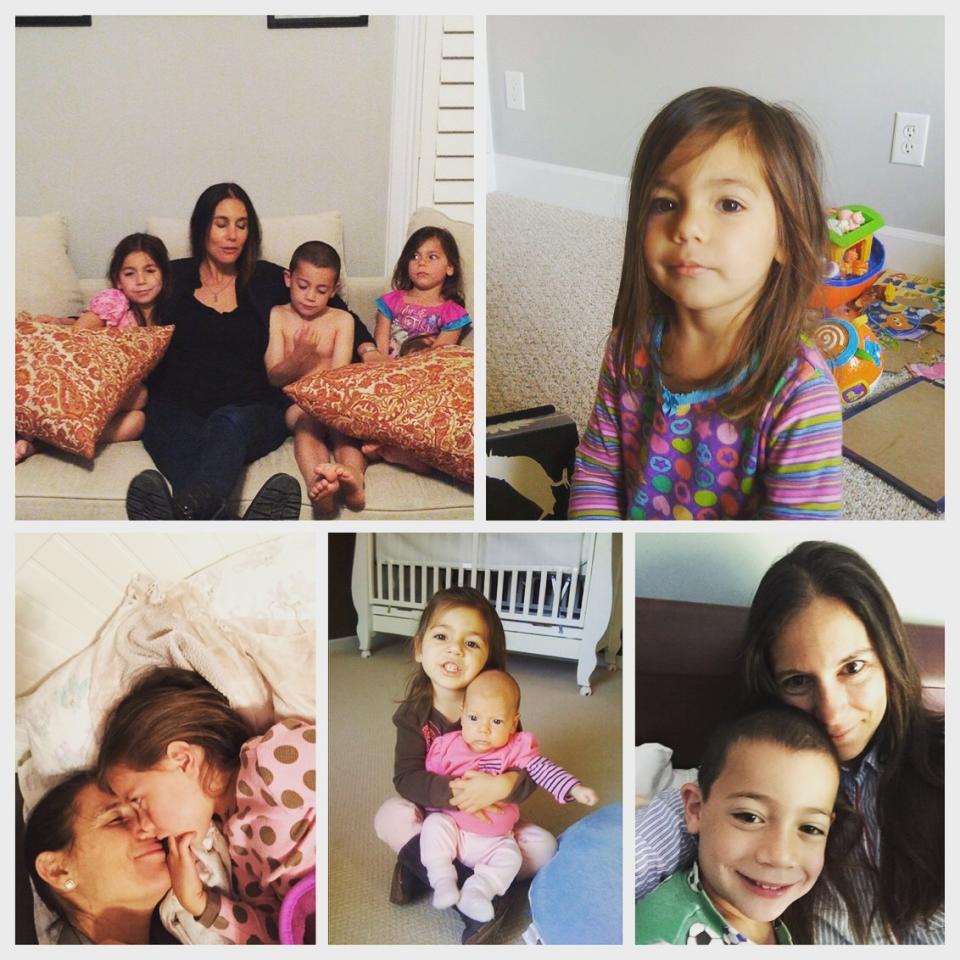How I’ll Speak to My Children About Rape, and What Happened to Me at 16

Cleaning up from dinner, I listened to the joyful sounds of my three children playing Candy Land in the living room when suddenly the words of the evening news echoed in the background: “Bill Cosby to be charged with rape.”
My heart stopped and I lost my breath when I heard the word. Rape. The word I had worked so hard to keep away from had found its way into my home, into my safe place. I quickly changed the channel and glanced back to see if they had heard it. Seemingly unfazed, they went about playing their game. But I knew it was only a matter of time.
STORY: I Never ‘Do It All’ — I’m OK With That
My three children — two girls, one boy — are all under 8 years old. And call it premature, but I have long wondered how long it would be until they heard the word rape and asked me what it meant. I dread that day, but I also know that it will be up to me to ensure that they have the proper definition, which I have rehearsed saying to them numerous times: “Rape is a crime where one person forces another to do something with their body that they don’t want to.”
For me, it’s more than just an uncomfortable conversation. For me, it’s personal. And when they get old enough to understand, I will tell them what happened when I was 16.
STORY: Why I Told My Daughter About My Bullying Past
I was desperate to fit in, and he was popular. I did everything right, I thought, to grab his attention — I went to all his sporting events, laughed at his jokes, and made sure I was the last one around to help clean up basement parties at the end of the night. But nothing worked, and it took a toll on my self-esteem. I watched him painfully from a distance, always overlooked as older, prettier girls fawned over him and he chose the lucky ones at random.
Until one night, he finally chose me.

The author and her kids. (Photo: Jaime Primak Sullivan)
He asked me to stay after a party. I couldn’t believe my luck. I drank another drink for courage as he led me toward his room. But almost immediately, I wanted to leave. Something wasn’t right. There was no conversation. No flirting. He was cold and degrading. When he tried to kiss me forcefully, I pulled back. He started comparing me to friends of mine he had slept with. “You’re a prude, and you’re wasting my time,” he said. “Why did I even bring you up here?”
I was so confused. I had known him to be cocky, but this was different. He was angry. I was nervous. Looking back, I think a small part of me knew what was going to happen. Should I have yelled? Run? Fought back? Maybe. Would I today? Yes. But who I was at 16 is not who I am today. And I knew him. He was my friend. We were in his bedroom. A bedroom we had hung out in numerous times. This wasn’t rape — not the rape I knew. Only it was.
Growing up in the ’80s, rape was clearly defined by things we saw in the news or on TV. It was a violent crime committed by someone you didn’t know while walking alone through a dark parking lot or jogging in a park in the wee hours of the morning. By that definition, there was no question of whether or not someone was raped.
But anything beyond the TV rape was murky, and I was left with guilt. I spent years faulting myself — if I hadn’t been so desperate for his attention, if I hadn’t stayed that night, if I had gotten into a hot air balloon and floated away… But the truth is that nothing I or anyone else does can make someone rape you if he is not a rapist. And this truth is what I hold onto when my grief becomes too much.
So now, as a mom, when the time is right, I will speak to my children as informatively and age appropriately as I can. I will discuss what safe, healthy, trusting relationships look like, and keep the focus on consent. Of course, just because I have a plan doesn’t mean it’s going to be easy. But if I wait too long, it becomes too risky: My daughter is 8. She can read. If I don’t explain what rape is, she will eventually look it up. I will explain to both of my daughters how to set healthy boundaries with their bodies and instill in them that no one has the right to do anything to them that they don’t want them to. I will explain to my son what consent means and leave no room for misunderstanding.
Normalizing the conversation will be the hardest part. The word alone is upsetting. Perhaps that’s why it was never really discussed with me. As a teen, I knew rape existed, but I didn’t recognize it when it was happening to me. I won’t make the same mistake with my own kids. And I hope that will be the good, after all these years, to come out of it all.
Top photo: Jaime Primak Sullivan
Jaime’s daily digital series #cawfeetawk can be seen daily on her Facebook page and YouTube channel.
Please follow @YahooParenting on Facebook, Twitter, Instagram, and Pinterest. Have an interesting story to share about your family? E-mail us at YParenting (at) Yahoo.com.

